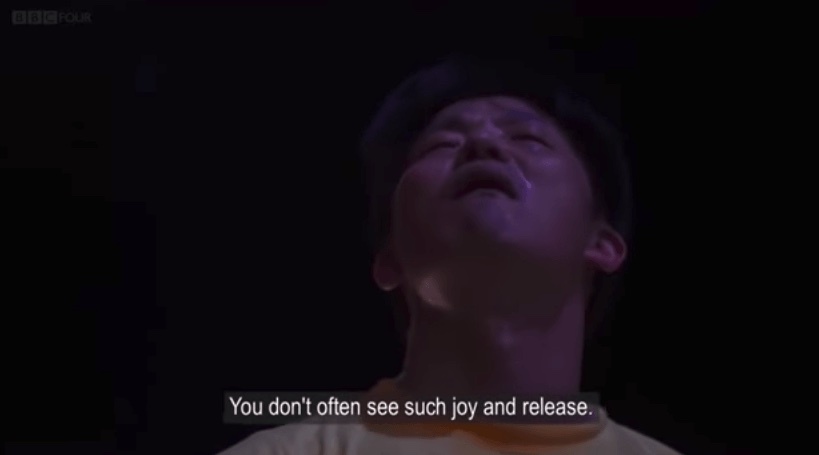
Much has been written since Tokyo Idol (2017)’s explosive Sundance premier about its message, its depiction of idols, their fans, and the larger society as a whole they live and interact in. Given the furor over the film, I went into with extremely low expectations, further dismayed by my preview of the piece that was shown on the BBC just recently. What I left with was an entertaining but ultimately misleading 88 minute documentary.
Devoid of any contextual analysis aside from the occasional remark about the current (not former) state of the Japanese economy, the movie attempts to show the lives of three (really only one) idols and some of their most diehard fans.
The fans’ motives are only analyzed on an individual basis, with the conclusion by several of the analysts (and ultimately the movie itself) being that these are a group of men so unwilling to face the reality that they choose instead the path of idol fandom, one that leads to nothing but unconditional love and full acceptance, driven into this corner by their unfulfilling lives and the economy.
Idols, it is said, are a means by which men can dominate women, wherein the woman is the focal point but only a symbolic holder of power, wielding it only at the behest of their (overwhelmingly male) fans.
While stylistically and cinematographically, the movie is beautiful with some of the best subtitling styles I have seen on screen, the actual substance is little more than a Western-style individualistic feminist lens transplanted onto the extremely broad idol sector.
That is to say: this is the same old message, delivered with slightly more attention given to fans and the idols themselves – just enough to make us feel like we truly grasp the situation at hand but never enough to understand the full context that would allow us to fundamentally appreciate the entire situation.

That appreciation, after all, would break the narrative that the documentary wishes to push: that Japan is a society of the dominated and the dominators, a world in which power is not acknowledged according to its cultural context but rather determined absolutely in very Western terms. And so there is no discussion here of Aoki Yayoi’s ie theory, nor is Ueno Chizuko (whose quote I begin this article with) given even the slightest acknowledgement. The two largest titans of contemporary Japanese feminism are completely silent, as are their compatriots, in favour of a single journalist who uses a Western lens.
Even when discussing the so-called “power” of the woman within this idol context, there is no time at all spent analyzing the hypercritical function of domestic power in a society dominated by a combination of Buddhist, Shinto and Neo-Confucian ideologies.
Despite the deluge of maternal vocabulary used across the spectrum in the film, not a single second is spent on the role of the Mother in Japanese society – especially the veneration of said role. Simply put, the film begins by assuming that the ruler by which all things should be measured as “good” or “bad” is a Western one, and the implication pushed in the film is that the context is not at all dissimilar to the one in which the very Western audience lives in.
To complicate matters further, the translation (both the contextual set-up and subtitles) and editing further obfuscate the issue, deceiving the watcher into thinking that the situation is anything but what the actual actors mean.
For example, at a certain point in the film, we are shown the fans of Oshima Ryoka (at that time in Team B of AKB48) praying at a shrine for Hatsumode. The audience is shown clips of interviews with these fans, all expressing their anxiety about how she “turned 17 last year,” per the subtitles.
What is not explained is that 17 (that is, the junior year of high school) is generally considered a turning point for most 48G fans, as that is when the idols decide whether or not to pursue entertainment as an actual career as opposed to a part-time job, with several girls either being pulled out by their parents or choosing to quit to pursue education or other professions instead. This context is purposefully left out so that instead, we, the audience, are left hearing her fans speak as if ‘her expiration date [was] quickly approaching’.
The most egregious of all such deceptions, intended or not – it isn’t like the director is actually that particularly familiar with the scene – was perhaps the following shot.

It is stunning to see the term 解放 (‘kaihou’, lit: liberation, emancipation, release) translated as “such joy and release.” The robbing of this term – especially in light of Koji’s following statement (describing the dissipation of all class and social barriers between fans) – of its extraordinary revolutionary and activist history is to put into Koji’s mouth words that he never spoke or intended.
The term is extremely associated with popular movements of all kinds, and of particular note is the fact Japan’s Woman Liberation movement (what we would see as being their equivalent of Second Wave feminism) started with Tanaka Mitsu’s infamous manifesto 便所からの解放 (“Benjo kara no Kaihou”, lit: ‘Liberation from the Toilet’).
Given that Koji is 43 as of 2015, it is extremely unlikely that he would not have heard of this work, and it would be even more unlikely that he would be completely unaware of the extreme Marxist and Communist foundations that the Woman Lib movement worked upon. This mistranslation is misguiding at best and fully deceptive at worst. An unbiased movie this is not.
So would I recommend the documentary? Sure. It was, after all, a highly entertaining and enjoyable 88 minutes. But don’t expect anything more than a better-enforced party line of “idols are sexist and bad” – in the Western sense only. Because, after all, who cares about the Japanese social context?

















